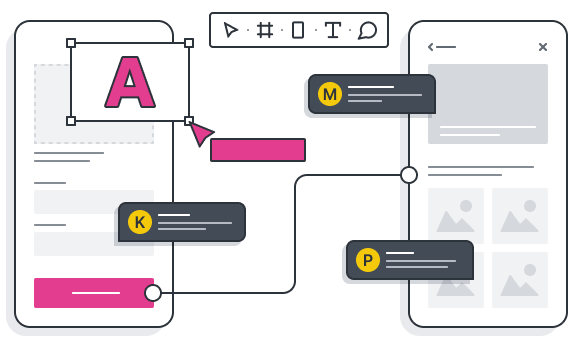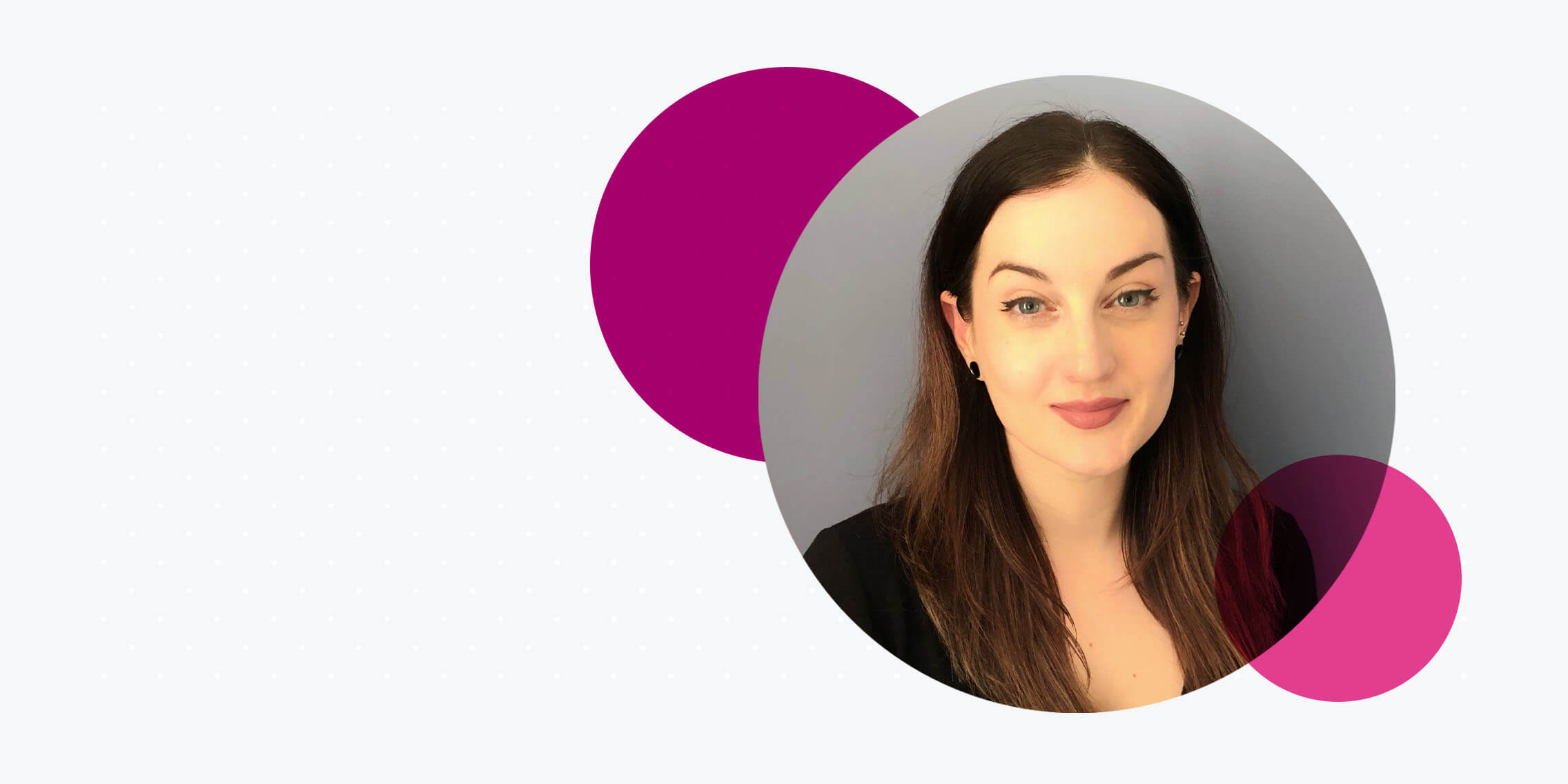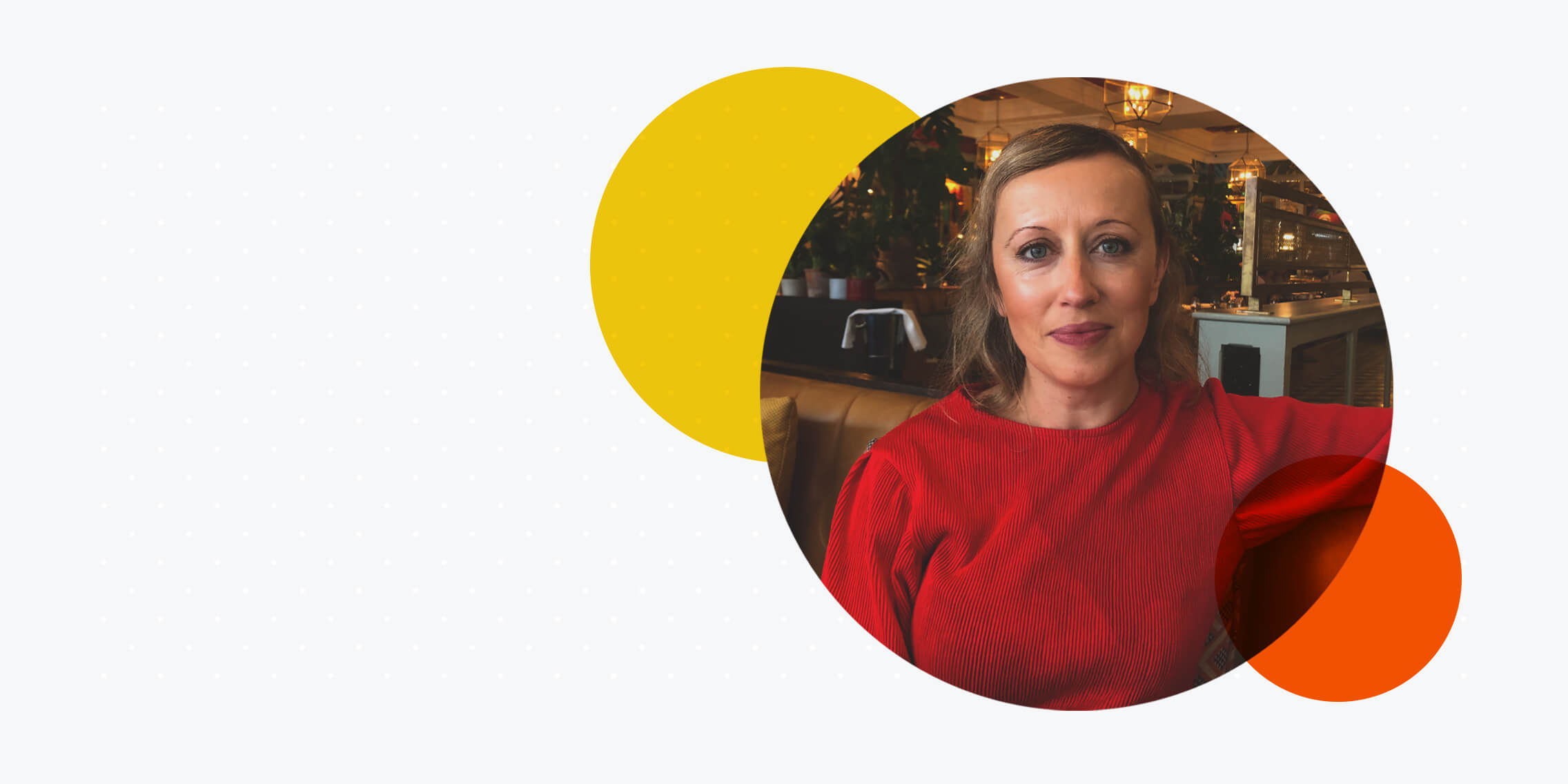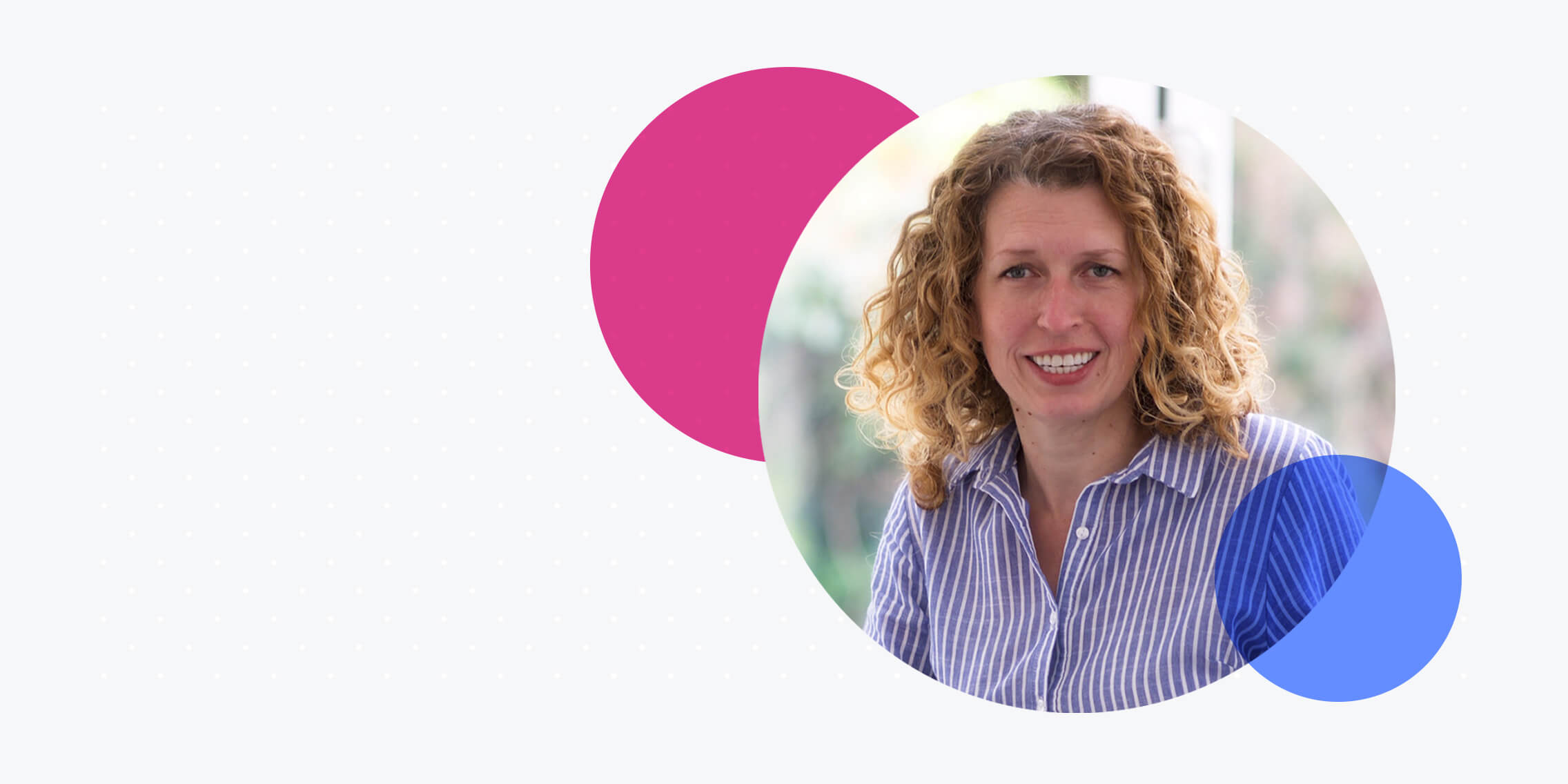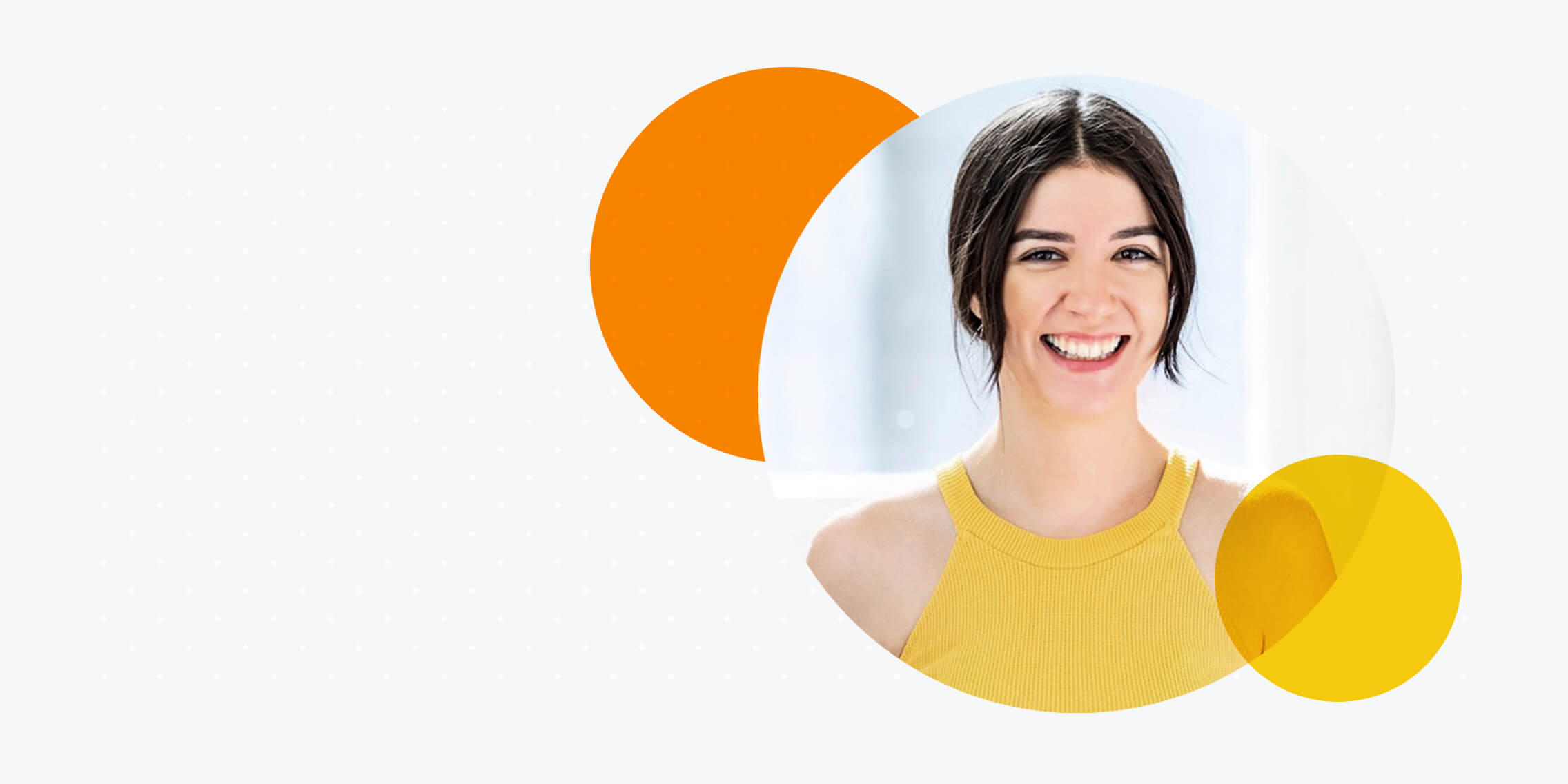Why did you want to get qualified in UX?
Like most people in hospitality, I was laid off from my job as a hotel receptionist when the pandemic hit.
I looked to the IT sector because it has lots of English speaking jobs in Sweden. I moved here from Croatia. I tried coding, but I didn’t like it. Then I started reading about UX and just fell in love with it.
I wanted a qualification and portfolio project to help me find a UX job within a year.
Why did UX appeal to you?
What really attracts me to UX is how you can bring a dose of humanity to technology. And you don’t have to be a mathematical genius to create something.
I’ve got such a mix of interests. On the one hand I love literature, psychology, and the social sciences. On the other hand, I enjoy sudokus, riddles, and mathematical problems. UX sits at the intersection of everything I’m good at.
Why did you choose the Professional Diploma in UX Design?
I was looking into different graduate programmes, but I didn’t want to do a two years masters degree. Somehow the Professional Diploma ended up on my radar!
There’s a lot of discussion around bootcamps and their “job guarantees”. The Professional Diploma in UX Design was different. It wasn’t promoted as something that would get me a job instantly.
It just seemed like high quality, well recognised UX education. People know that it’s a good course.
I also liked how you could do the diploma in your own time. I did it really fast. It only took me two months to finish the projects, plus two weeks to study for the exam.
The course only requires five hours per week, but I just needed something to bury my head into during the pandemic.
What was the course content like?
Interaction design and sketching was super fun! I liked getting my ideas down on paper. I was really drawn to that. I’m now considering specialising in interaction design because I’m fascinated with the cognitive aspect of how humans interact with software.
What was the biggest challenge that you faced in the course?
My biggest challenge was self imposed! I wanted to finish the course as soon as possible to start job hunting quickly.
I had such imposter syndrome when I started learning UX. I still feel insecure sometimes. I guess it’s normal because I work with experienced designers who also talk about it?
The important thing is that we love what we do.
What was the job hunt like?
It was full of generic rejection emails! I learnt not to take them personally.
It’s not the hiring manager’s job to give us feedback on our portfolio. Sometimes they have 600 applicants for one role and someone is just better than you. You just have to keep going. I knew that once I got an interview I’d be able to show them what I can do.
I remember that I really liked the ad for my current job on LinkedIn. It wasn’t front-end development or marketing masquerading as UX. It was just UX.
They were also looking for a mid-level designer. I applied anyway and didn’t expect to hear anything. The lady from people operations said that they were looking for a junior and mid-level designer.
Don’t skip on ads that require a couple of years of experience. There’s always exceptions!
Can you describe your current role?
I’m a UX designer at Grafana Labs, I’ve been with them for about six months. This role and company are exceeding my expectations! We’re a very young team with eight UX designers. And we’re still growing.
I cover the full UX process from user research to development handover.
We’re a remote first company, but my team is based in Europe. Mornings are my focus time where I do most of my work. Afternoons are for meetings. There’s a lot of emphasis on standardising processes, optimising performance, and learning about our products.
The software is mainly for software engineers. It’s quite complex, so I spend a lot of time finding out how things work in order to create usable interfaces.
Was your employer interested in your previous work experience?
They liked that I had experienced working in hospitality. I was service-minded. I was used to helping and talking to people as a receptionist, even though it’s different to doing user interviews and usability tests.
They were also interested in my English degree and translation experience. I work on an international team where English isn’t everyone’s first language. I said that I could help out with UX writing, grammar, and content presentation.
How has the course helped with your current job?
It gave me a holistic understanding of user experience and the value it brings to product development.
It also gave me more confidence and a bunch of resources that I still use in my job.
What’s your favourite thing about your job?
My team. Everyone is very knowledgeable and they inspire me to be better.
I also love working from home. I understand that some people might find it hard, especially if you’re in lockdown. It’s not a problem for me. I’ve always been more on the introverted side.
Would you recommend the course to others?
I’ve already recommended it to several people! People message me on LinkedIn and ask about my experience with the course. I always tell them to go for it.
What advice would you give to someone considering the course?
I think it’s good to get some real-world experience after you complete the course.
Do a personal project to add another project to your portfolio and get that collaboration experience. You can help a non-profit that’s trying to do something good.
If it’s a project that’s going to be handed over to development – even better. If you can’t find that, work with some people to experience working on a team.
I’d also advise not to say ‘I’ all the time in interviews. Take credit for what you did, but give credit to other people too.
